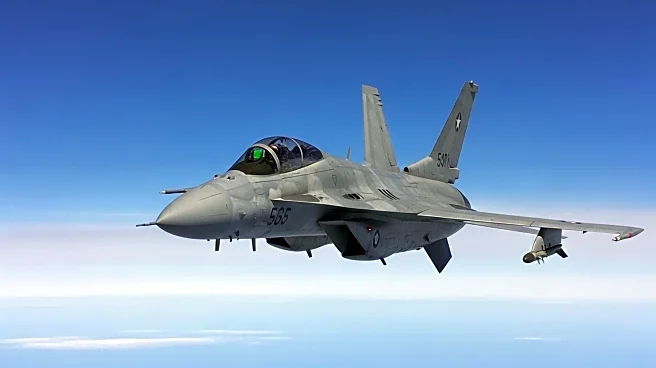What is the story about?
What's Happening?
The U.S. Senate has passed a $914 billion defense policy bill, overcoming a month-long gridlock on amendments. The National Defense Authorization Act (NDAA) was approved with a 77-20 vote, marking a bipartisan effort to move the legislation forward. The bill's passage allows the House and Senate Armed Services Committees to begin the conference process to reconcile differences between their respective versions. Key amendments debated included restrictions on modifying foreign aircraft, which was defeated, and measures to enhance drone threat mitigation over military installations, which passed. The bill also extends the prohibition on B-1 bomber retirements until FY30.
Why It's Important?
The passage of the NDAA is crucial for setting defense priorities and funding levels for the fiscal year. It impacts military operations, procurement, and strategic initiatives, influencing U.S. defense policy and international military relations. The bipartisan support reflects a unified approach to national security, while the amendments highlight ongoing debates over military spending and operational strategies. The bill's provisions on drone threats and bomber retirements address specific security concerns, ensuring continued military readiness and technological advancement.
What's Next?
The bill now heads to conference, where lawmakers will finalize the language on acquisition reform, a priority for both the House and Senate Armed Services Committees. The conference will also address the $32 billion difference between the Senate's version and the Pentagon's budget request. The outcome will influence future defense spending debates, potentially affecting military funding and strategic capabilities. Stakeholders, including defense contractors and military leaders, will closely monitor the conference outcomes for impacts on procurement and operational planning.
















